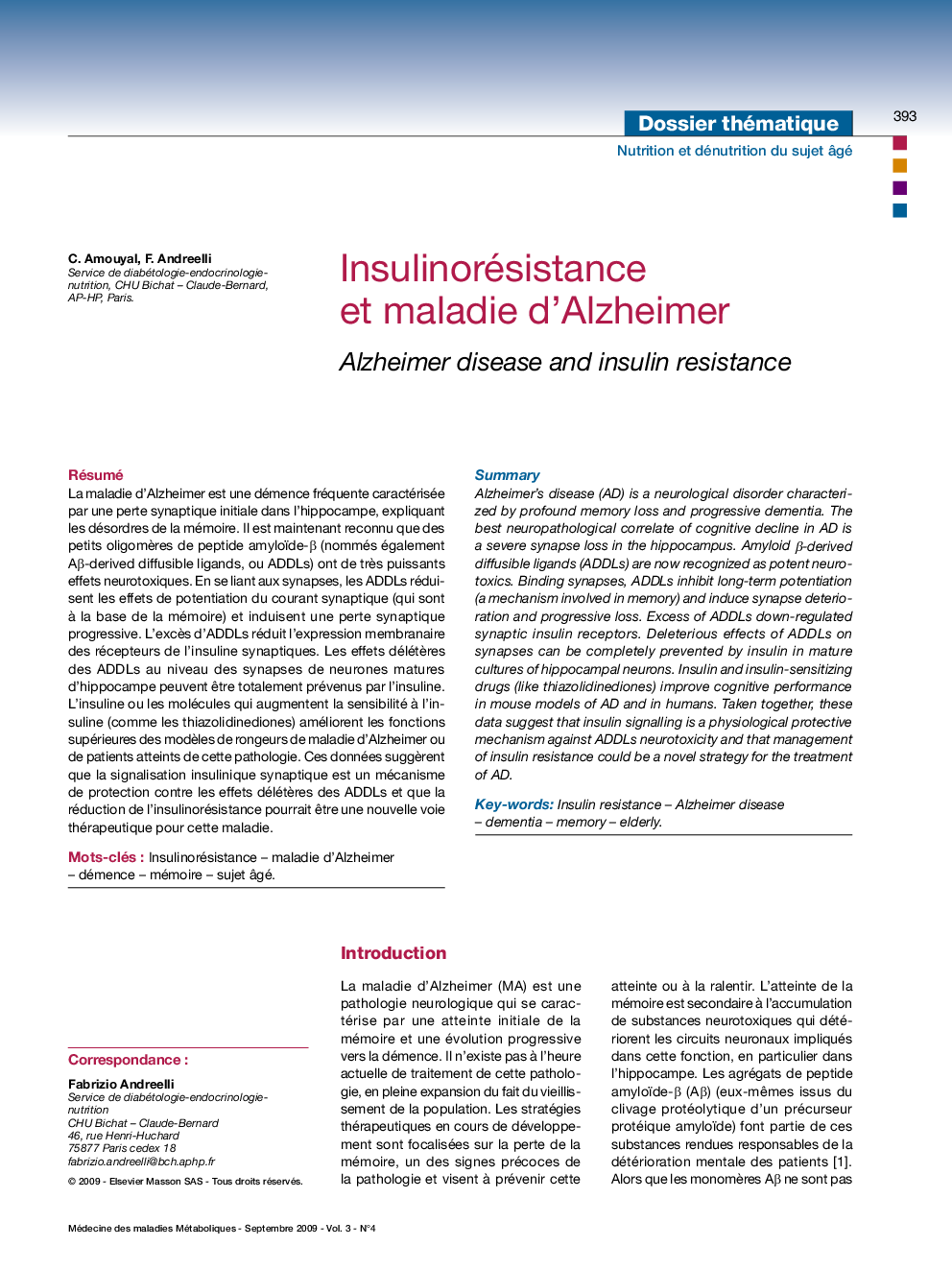| Article ID | Journal | Published Year | Pages | File Type |
|---|---|---|---|---|
| 3275263 | Médecine des Maladies Métaboliques | 2009 | 4 Pages |
Abstract
Alzheimer's disease (AD) is a neurological disorder characterized by profound memory loss and progressive dementia. The best neuropathological correlate of cognitive decline in AD is a severe synapse loss in the hippocampus. Amyloid β-derived diffusible ligands (ADDLs) are now recognized as potent neurotoxics. Binding synapses, ADDLs inhibit long-term potentiation (a mechanism involved in memory) and induce synapse deterioration and progressive loss. Excess of ADDLs down-regulated synaptic insulin receptors. Deleterious effects of ADDLs on synapses can be completely prevented by insulin in mature cultures of hippocampal neurons. Insulin and insulin-sensitizing drugs (like thiazolidinediones) improve cognitive performance in mouse models of AD and in humans. Taken together, these data suggest that insulin signalling is a physiological protective mechanism against ADDLs neurotoxicity and that management of insulin resistance could be a novel strategy for the treatment of AD.
Keywords
Related Topics
Health Sciences
Medicine and Dentistry
Endocrinology, Diabetes and Metabolism
Authors
C. Amouyal, F. Andreelli,
